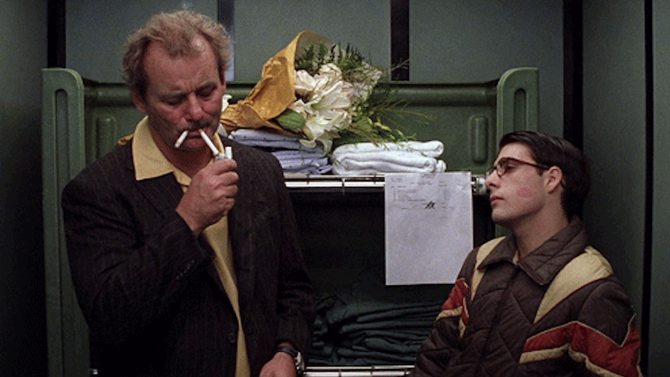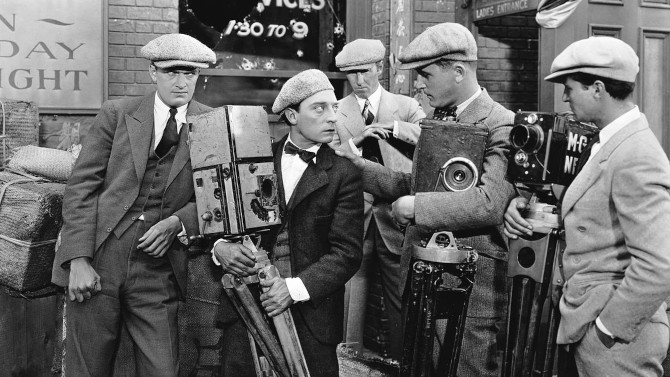
Plights, Camera, Action
Often deemed to be the last classic film made by the great Buster Keaton, The Cameraman (1928) was the final time the silent legend would have anything close to full creative control over one of his own features... as he folded his independent studio to sign with Metro-Goldwyn-Mayer (MGM) – who promptly made him their third highest paid star. Though his future would soon turn very bleak, this first film with the new studio was his own idea.
-
Star Pick with Jayson Warner Smith
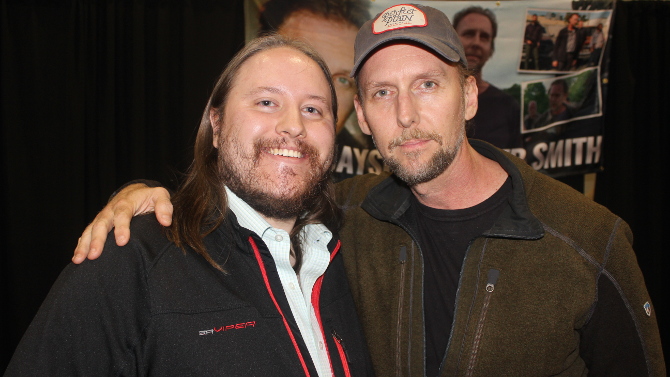 High School ConfidentialRushmoreMay 1, 2018
High School ConfidentialRushmoreMay 1, 2018I was fortunate enough to sit down with actor Jayson Warner Smith at CAPE (Cornwall and Area Pop Expo) recently. Perhaps best known as Gavin, Negan's trusted and rather level-headed manager of the Kingdom in The Walking Dead, he has quickly carved out several quality roles on both television and the silver screen in a short time. Also with a key role on the highly acclaimed series Rectify (which ran for four seasons and ended in 2016), his character of Wendall Jelks is a master antagonizer and death row inmate, while he takes a wholly different turn as a loyal yet wild right-hand man airplane pilot to Tom Cruise's character in 2017's American Made (directed by Doug Liman). He has also appeared on the big screen in films such as Footloose (the remake), Mississippi Grind, Christine, and Birth of a Nation.
-
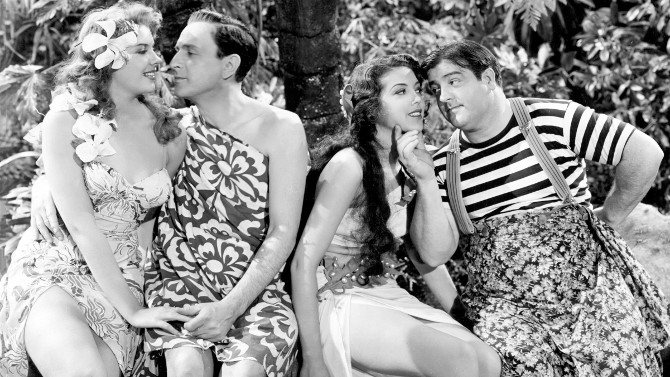
Sarong Side of the Tracks
Pardon My SarongApril 15, 2018Less of a critique than an observation, movies have clearly become freer in many respects – violence, nudity and profanity can now be littered throughout the narrative. . . yet, the twenty-first century has brought with it a more politically correct outlook, and stories are impeded in this very different respect (unlike films during the Motion Picture Production Code and after – which, for many reasons, were able to be more politically incorrect, for lack of a better term). Case and point, Abbott and Costello’s Pardon My Sarong, directed by Erle C. Kenton (Island of Lost Souls; Who Done It?). The piece of dialogue in question finds the comedic duo discussing marriage –
-
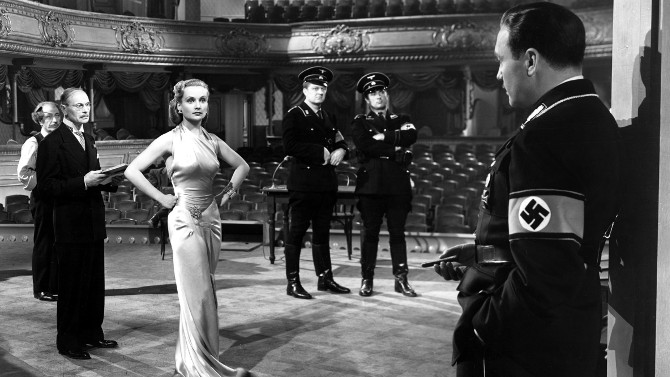
Polish to Perfection
To Be or Not to BeApril 13, 2018To Be or Not to Be walks a complicated tightrope – released in 1942, the World War II set comedy, even by today’s standards, could be called politically incorrect. Satirizing the horrible situation over in Europe (specifically Poland), co-adapter and director Ernst Lubitsch knew, like Charlie Chaplin before him (The Great Dictator), that it was vital to be able to laugh in the face of Hitler and the Nazis, both alleviating the tension of audiences back home with humour while also bringing the Axis power down a notch, highlighting their absurdly ridiculous doctrine and beliefs. A play, or should I say plays within a play, the story follows an acting troupe in Poland managed by producer/director Dobosh (Charles Halton). Starring the husband and wife team of Joseph (Jack Benny) and Maria Tura (Carole Lombard), they are currently bringing Shakespeare’s “Hamlet” to life. Preparing for their next play during the day, “Gestapo” is a satire revolving around Hitler and his cronies, comedy coming from the extensive use of “Heil Hitler”, an inquisition of a young child who the Nazis are worried will not talk, and a joke about how “They named a brandy after Napoleon, they made a herring out of Bismarck, and the Fuhrer is going to end up as a piece of cheese!”. Of course, Maria wants to wear a fashionable dress in a concentration camp scene much to the chagrin of Dobosh, though Greenberg (Felix Bressart), the lowly Jewish actor who desperately hopes of playing Shylock one day, suggests, “It’ll get a terrific laugh” – his go-to catch phrase. Other problems arise, with Dobosh equally unimpressed by Bronski’s (Tom Dugan) Hitler, saying, “I don’t know. . . it’s not convincing. To me, he’s just a man with a little mustache”, to which the makeup man replies, “But so is Hitler” – a line that really hits home.
-
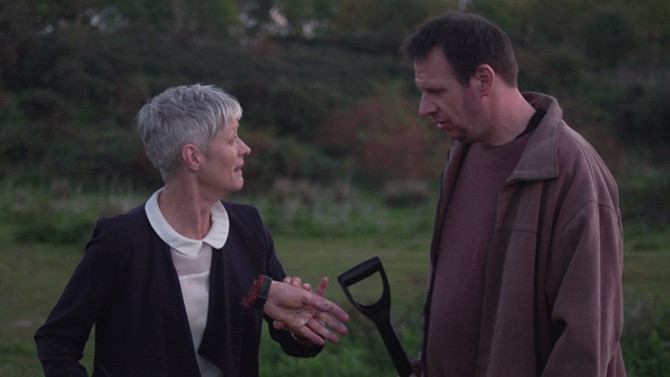
Hand it Over
The Missing HandMarch 20, 2018Don’t you hate when this happens. . . while working outside, you by chance stumble upon a severed hand. It is this absurdist situation that comes to vivid life in writer/director Daniel Harding’s 2016 dark comedy short film The Missing Hand. Right out of the Alfred Hitchcock playbook, think The Trouble With Harry (and, if you do not recall the premise, I’ll let you in on a little secret – Harry’s dead) or Rope, the narrative finds two very different people, Ms. Whitman (Meryl Griffiths) and Trevor (Neil James) walking a plot of land they are thinking of developing. The former – a shrewd, business-driven financier, the latter – an energetic, simple-minded builder; the pair are destined to make a killing on the vacant lot.
-
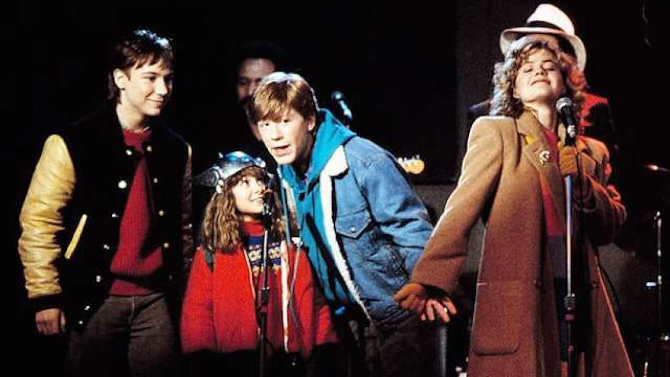
Babysitting is Dangerous
Adventures in BabysittingJanuary 16, 2018Going all the way back to Chris Columbus’s first directorial effort, 1987's Adventures in Babysitting is the way PG family films should be made, entertaining for both adults and kids, with just the right amount of edginess. Though incredulous, the entertaining narrative follows teenager Chris (Elisabeth Shue), who, after boyfriend Mike (Bradley Whitford) cancels on their anniversary dinner, grudgingly takes a job babysitting an adventurous eight year old, Sara (Maia Brewton), instead. Her older brother, 15 year old mild-mannered Brad (Keith Coogan), is supposed to be staying at his quirky buddy Daryl’s (Anthony Rapp), but after hearing that Chris is babysitting, sticks around.
-
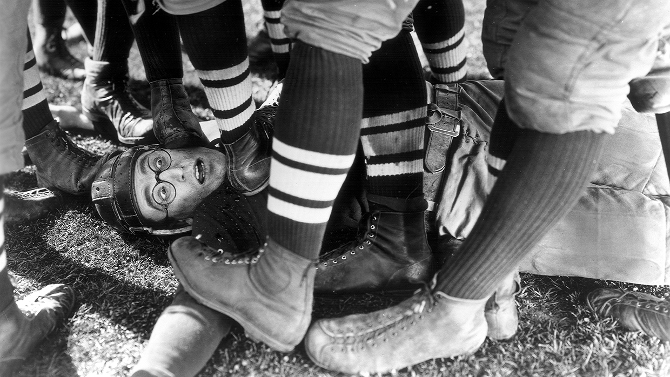
Running Down a Dream
The FreshmanJanuary 7, 2018Setting out to film (firstly) the climactic football scene at the Rose Bowl (stadium) in Pasadena, California for his 1925 feature The Freshman, Harold Lloyd soon felt like he was lost – unable to sense the character and his feelings, not able to hit the right tone for his collegiate protagonist. Scrapping the work, he decided to return to Hollywood and shoot sequentially – a rarity for any motion picture. It was typical for Lloyd and his team to come up with the major set pieces first (a perfect example being the football sequence) – shooting it at the very beginning, but in this case, Lloyd felt like this format was better suited, as it would add depth and continuity as the actors grew into this very character driven story. Becoming a major spectacle (and Harold Lloyd’s highest grossing film), it spawned an immense number of college sports movie knock-offs that would dominate the theatre scene for the next several years (a prime example, Lloyd’s character is utterly inspired by a fictional college student found in a fake movie made up for this one titled “The College Hero” – two years later, The College Hero was released by Columbia Pictures). Following Lloyd’s Harold ‘Speedy’ Lamb (notice his nickname is the title of his 1928 New York set picture), the teen is heading off to Tate University – a school that is football crazy. While en route, he meets a shy, sweet hearted ingenue named Peggy (Jobyna Ralston) – timid love at first sight.

